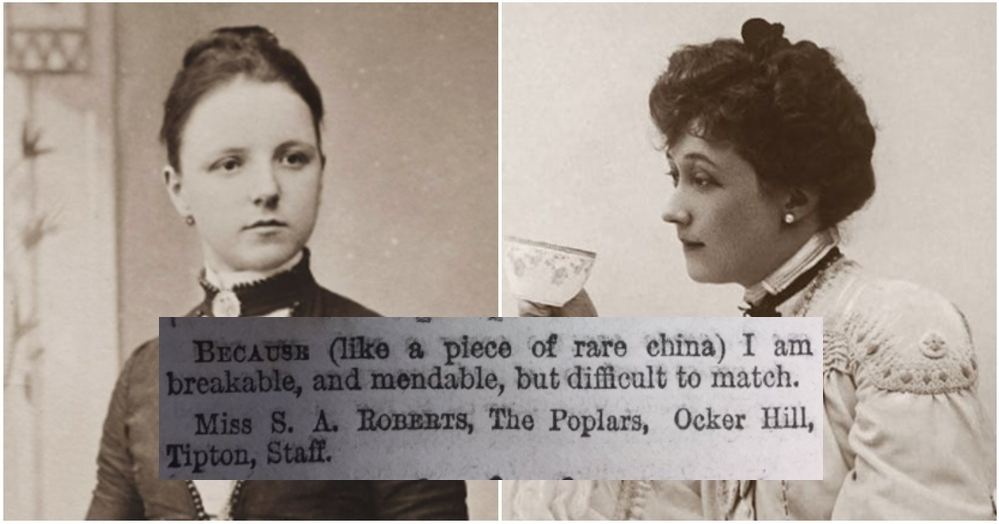“Spinster” was one of the worst insults a person could hurl at a woman in the Victorian era. Typically, a spinster was a single woman who was childless, unmarried and had few prospects. Spinsters were the subject of cruel jokes and thought of as sad, lonely women, left on the shelf.
The term spinster dates back to the 1300s and refers to women who spun yarn for a living. This was often the profession of single women because they didn’t have the resources to purchase expensive materials, so they were relegated to spinning wool. In 1889, the editor of Tit-Bits, a British weekly magazine, asked single women to write in and explain why they aren’t married. The woman with the best response would be featured in the paper and win a prize.
The article was discovered by historian Dr. Bob Nicholson.
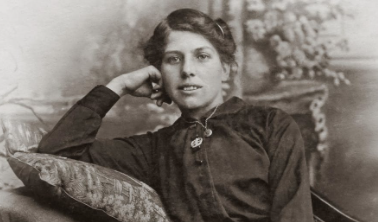
The request was a response to an earlier piece the magazine had run asking male readers, “Why are you a bachelor?”
The editor received a ton of letters and they weren’t the cordial responses we’ve come to expect from women of the era. Nope. They were smart, funny and sharp retorts that showed there were a lot of women out there who were single for a reason.
The editor originally only planned to post one response, but instead, he ran 21 responses and gave each one an equal piece of the prize. Each woman earned 5 shillings, which is about $25 today.
Here are 11 of the best responses. The first one is a reference to the tide of American women who flocked to England to marry into the aristocracy in the era.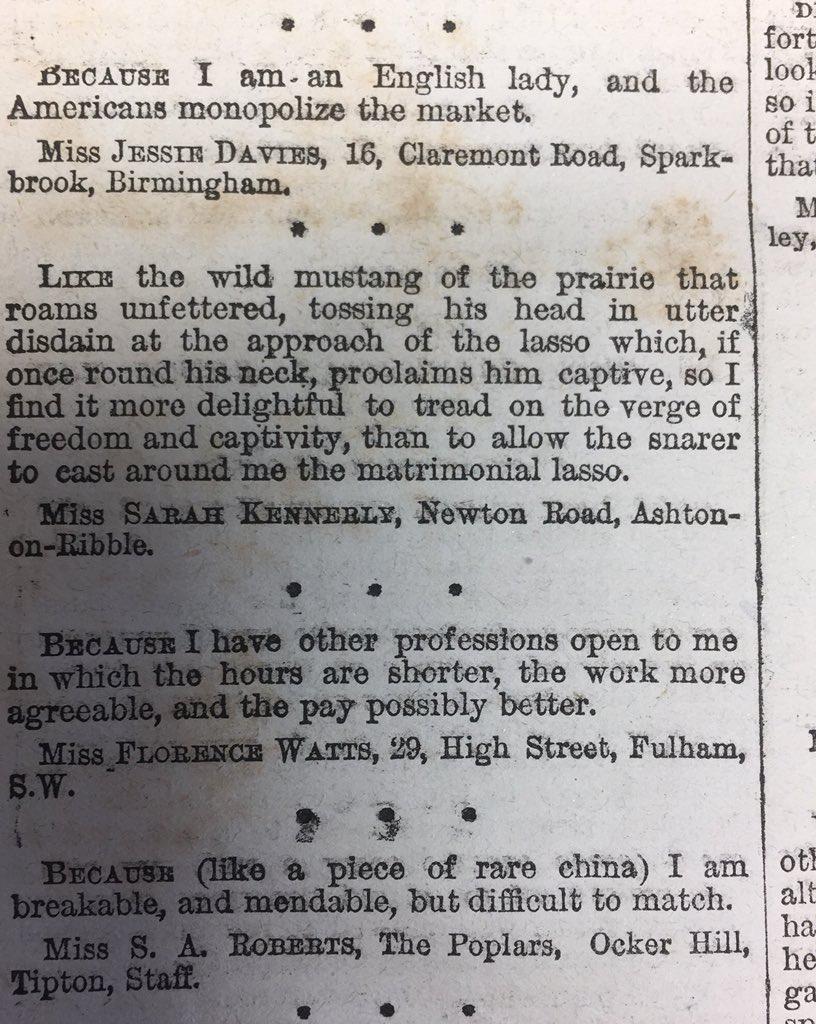
1. It’s the damn Yankees
“Because I am an English lady, and the Americans monopolize the market,” — Miss Jessie Davies
2. She’s a wild horse
“Like the wild mustang of the prairie that roams unfettered, tossing his head in utter disdain at the approach of the lasso which, if once round his neck, proclaims him captive, so I find it more delightful to tread on the verge of freedom and captivity, than to allow the snarer to cast around me the matrimonial lasso,” — Miss Sarah Kennerly
3. She’s a self-made woman
“Because I have other professions open to me in which the hours are shorter, the work more agreeable, and the pay possibly higher,” — Miss Florence Watts
4. She’s rare china
“Because (like a piece of rare china) I am breakable, and mendable, but difficult to match,” — Miss S.A. Roberts,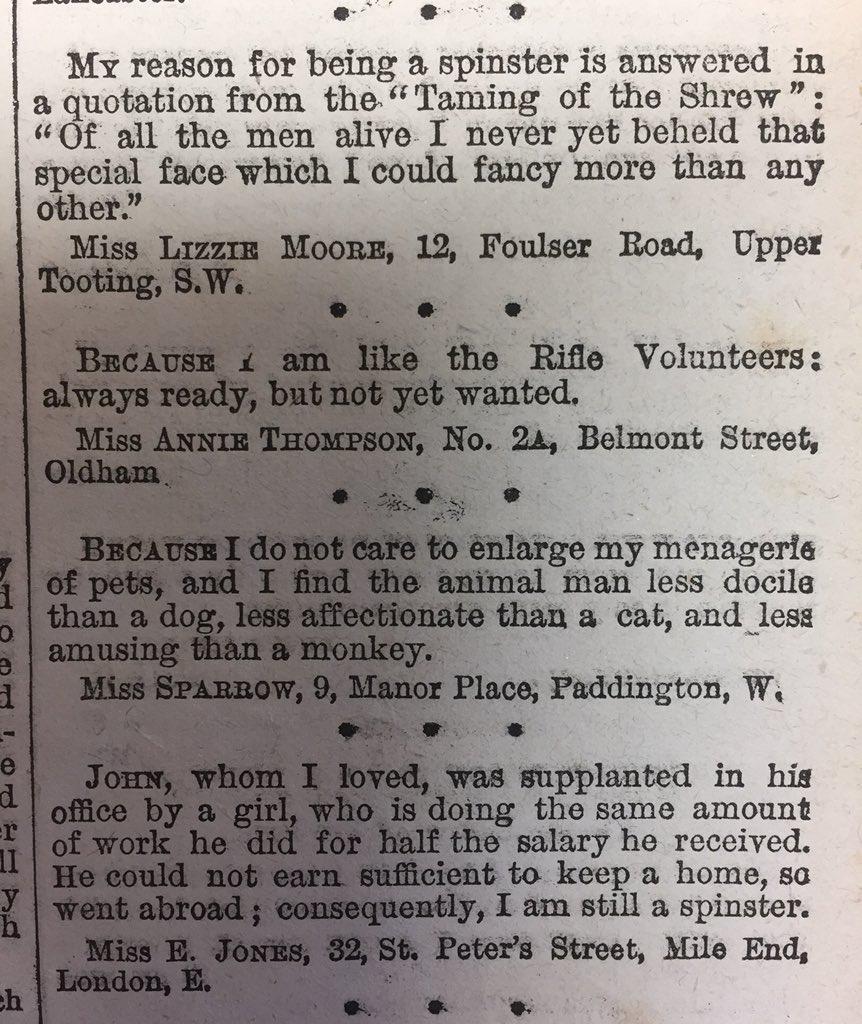
5. Only Shakespeare could describe her
“My reason for being a spinster is answered in a quotation from the ‘Taming of the Shrew’: ‘Of all the men alive I never yet beheld that special face which I could fancy more than any other,” — Miss Lizzie Moore
6. Ready for action
“Because I am like the Rifle Volunteers: always ready, but not yet wanted,” — Miss Annie Thompson
7. No need for a beast
“…I do not care to enlarge my menagerie of pets, and I find the animal man less docile than a dog, less affectionate than a cat, and less amusing than a monkey,” — Miss Sparrow
8. We’ll marry when John can afford it
“John, whom I loved, was supplanted in his office by a girl, who is doing the same amount of work he did for half the salary he received. He could not earn sufficient to keep a home, so went abroad; consequently, I am still a spinster,” — Miss E. Jones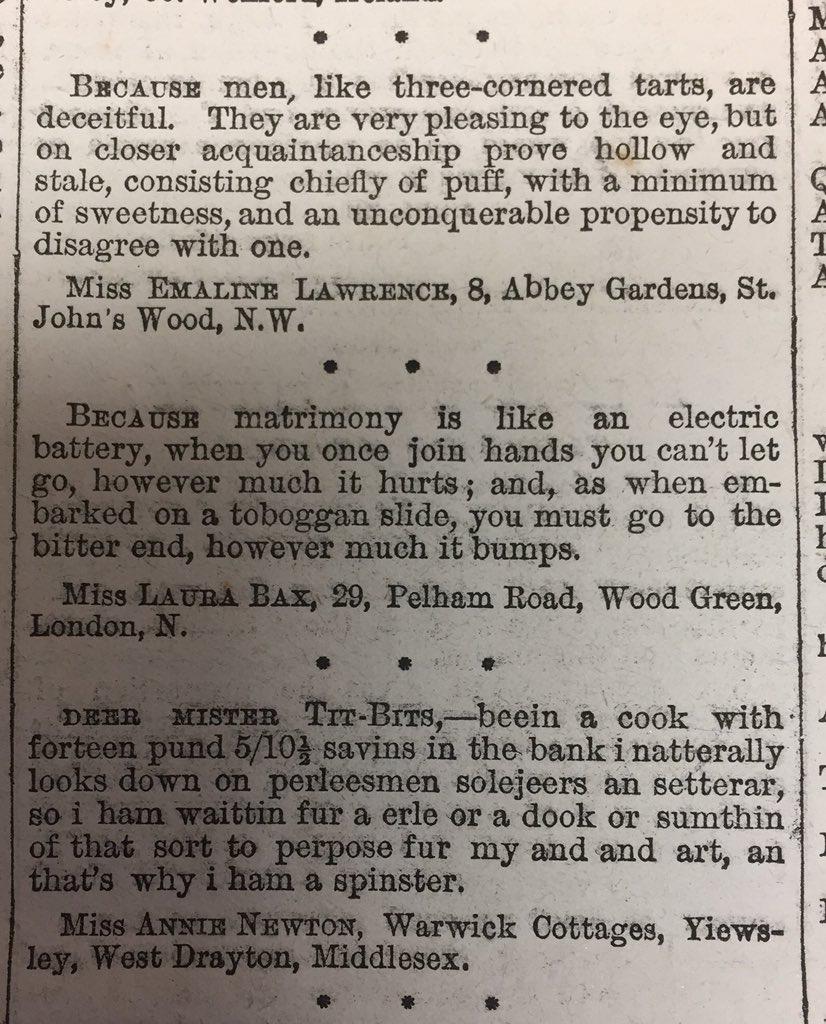
9. Men are deceitful
“Because men, like three cornered tarts, are deceitful. They are pleasing to the eye, but on closer acquaintanceship prove hollow and stale, consisting chiefly of puff, with a minimum of sweetness, and an unconquerable propensity to disagree with one,” — Miss Emaline Lawrence
10. There’s no way off the marriage toboggan
“Because matrimony is like an electric battery, when you once join hands and can’t let go, however much it hurts; and, as when embarked on a toboggan slide, you must go to the bitter end, however much it bumps,” — Miss Laura Bax
11. Waitin’ fer a dook
“Dear Mister Tit-Bits,-beein a cook with forteen pund 5/10 1/2 savins in the bank i natterally looks down on perlseesmen soljers an setterar, so i ham waiting fur a erle or a dook or sumthin of that sort to perpose fer my and and art, and that’s why i ham a spinster,” — Miss Annie Newton
This article originally appeared two years ago.


